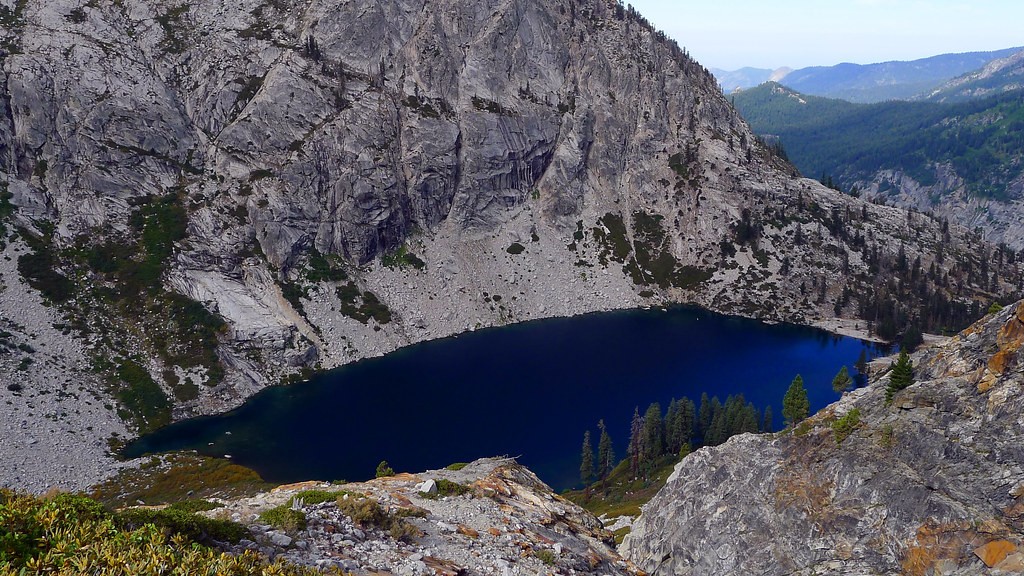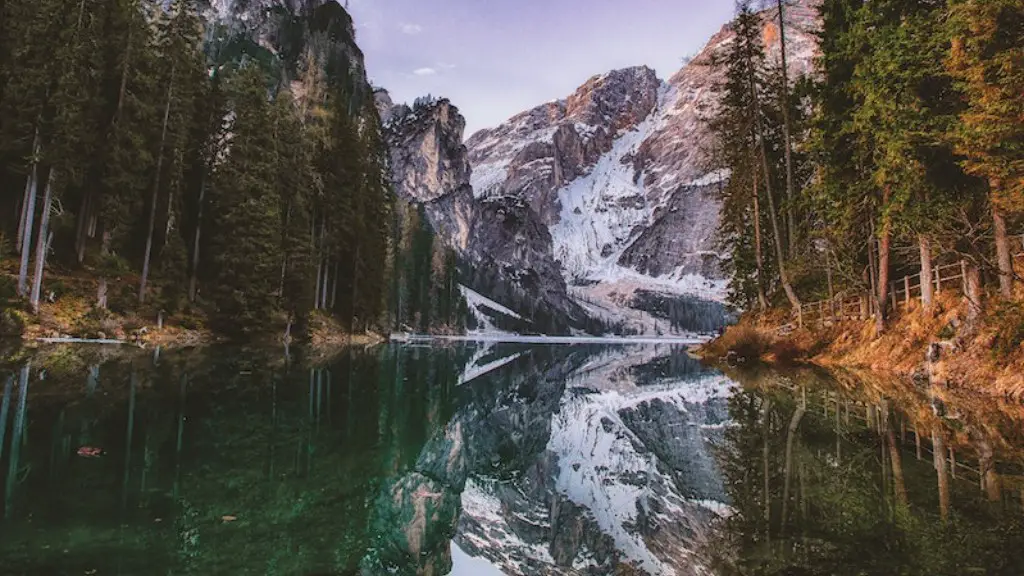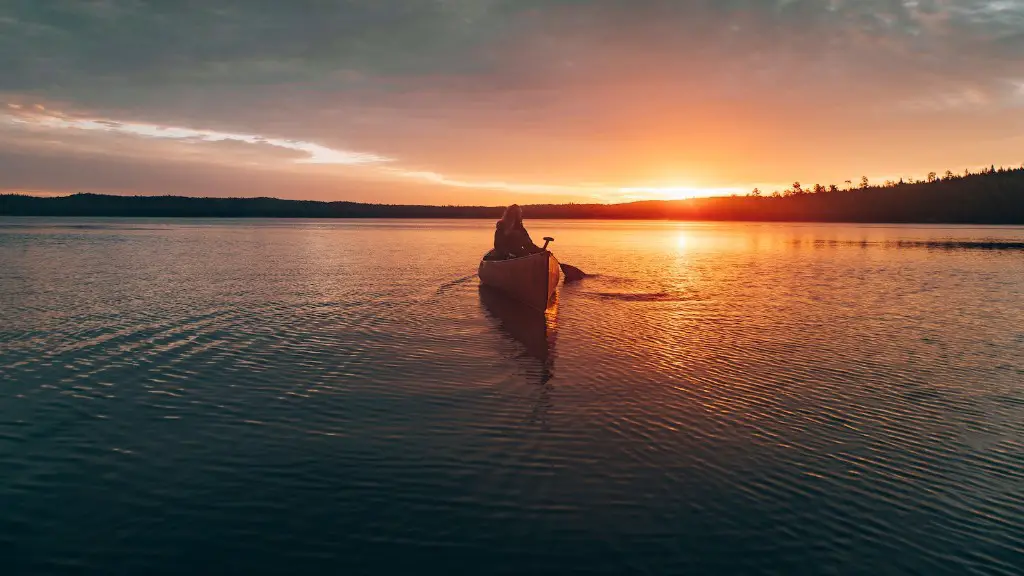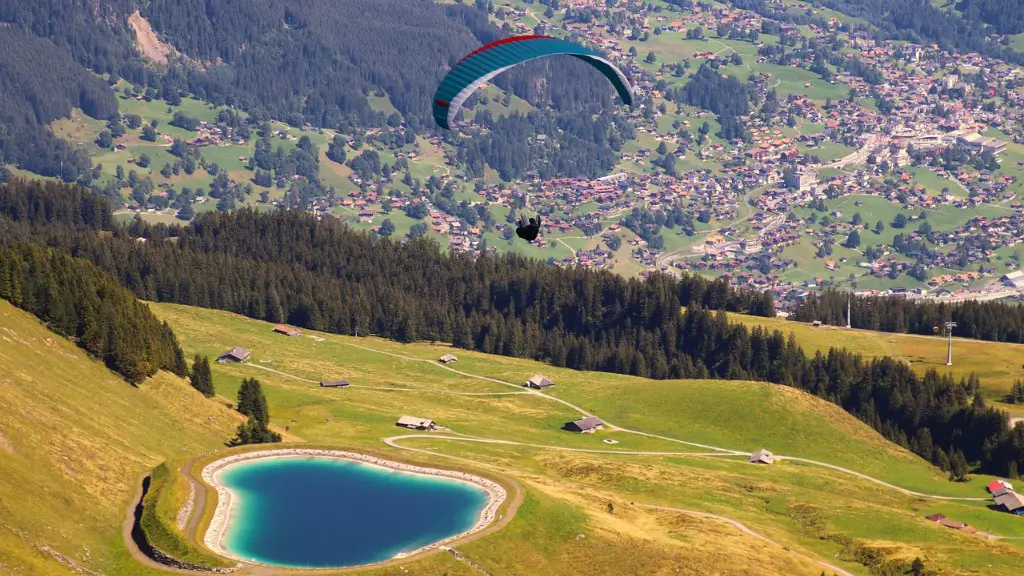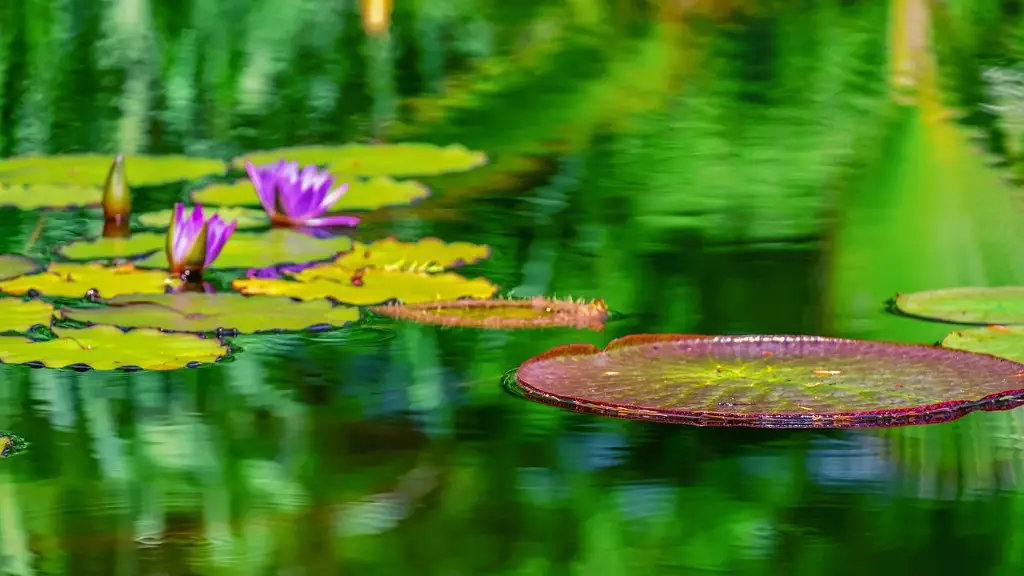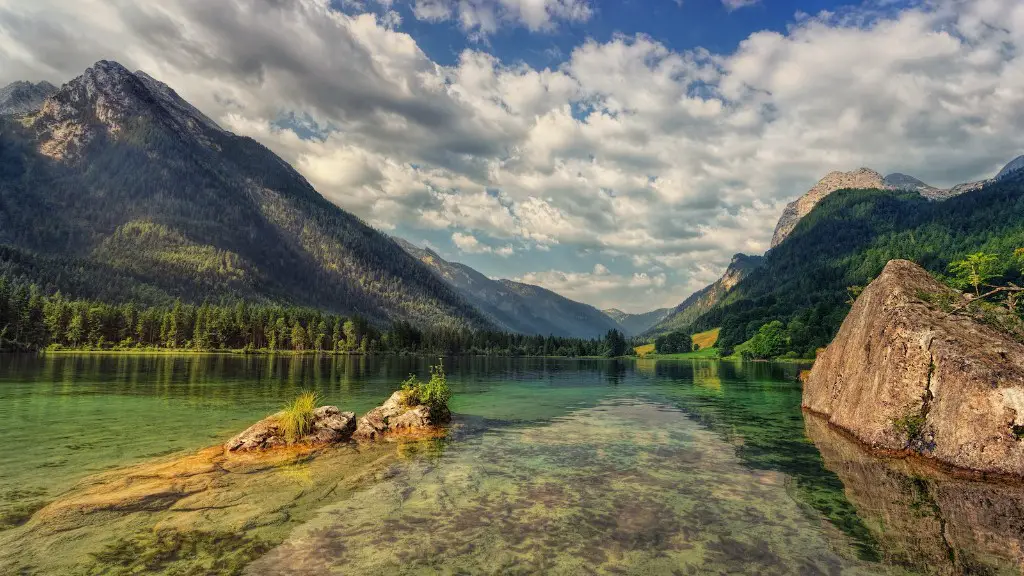Lake Baikal, the oldest and deepest lake in the world located in southern Siberia, has become a major travel destination, a site of scientific research, and increasingly a major concern regarding its decline. The Baikal region is home to 12% of the world’s fresh water and it is estimated that 17% of all species found in the lake are unique; however, recent reports have indicated that Lake Baikal is shrinking and if the decline continues, this greatly impacts the environment and the people living in the area and in the entire region.
Bringing to focus this environmental concern, a research conducted by the Hydrology and Ecosystem Research Institute at Baikal observed that the water surface is declining by an average of 4-6 cm every year. This has been largely attributed to the changing climate, resulting in higher temperatures and drier summers. The researchers mention that for over 20 years—since 1996—snow cover has been declining, thus impacting the lake’s water levels. This has been mainly because of the lack of precipitation in winter, leading to the snow melting faster than what it used to in the past.
The lake’s size has been decreasing significantly over the past few decades. Data collected since 1989 shows that the Baikal’s water volume has been decreasing by 0.14 km3. Consequently, this has led to the lake’s edge retreating by 1.27 km and the volume has dropped by 0.93 km3.
Dr. Shilova, an associate professor at the University of Wisconsin-Madison’s Center for Limnology and lead author of the research article about the declining Lake Baikal, states that the water volume in Lake Baikal is decreasing rapidly, threatening both its biodiversity and the people who depend on it for tourism, industry, and fishing. She further mentions that the warming temperatures and changing climate are leading to a decline in the lake’s water level, which is worrying, especially when it comes to the sustainability of the lake.
However, some experts take the stance that the current decline observed in the lake is part of a natural process and is nothing new. This is attributed to the lake’s climate, which is known to fluctuate over time and is expected to stabilize without the need for human intervention. Despite this, the decline seen in recent times is larger than the decline observed in the middle of the 19th century, which cannot solely be attributed to climate change.
Director of Federal Projects of the Baikal Nature Reserve
Vladimir Bespalov, director of federal projects of the Baikal Nature Reserve, notes that Lake Baikal is the birthplace of a unique eco-region which consists of species that adapted to the unique environment of the region. He emphasizes that the decline could lead to the extinction of this unique flora and fauna, and therefore the preservation of Lake Baikal is essential for keeping it safe from the effects of climate change.
He also believes that to limit the decline, more stringent norms and measures need to be implemented by the local governments and people living in the area that use the lake for tourism, fishing, and other industries. He highlights that large-scale hydropower and irrigation projects in the Baikal area are contributing significantly to the decline of the water surface area and could pose a major threat to the ecosystem.
In addition, the Baikal Reserve is focusing their efforts on preventing agricultural and industrial waste and runoff from entering the lake’s ecosystem. Bespalov highlights that monitoring and restricting the volume of wastewater, chemical pollutants, and sludge going into the lake is vital. He also recommends limiting the construction of dams and tunnels in the area and increasing public awareness to increase the understanding of the importance of the lake.
Baikal Environmental Wave
The Baikal Environmental Wave is a group of activists in the region striving to preserve the lake and its biodiversity. The activists from the organisation focus on raising awareness about the environment, conducting research to track the changes in the lake over the years, and educate the locals on ways to protect and conserve the lake.
The organization is also working to reduce the effects of climate change on the lake. The activists are focusing on taking measures to reduce greenhouse gas emissions and encouraging sustainable practices with the local people to limit the negative effects of their activities. The activists have been organizing protests, petitions, and meetings to bring attention to the importance of the lake and the need to protect it.
The organization is also working to spread its message across the country in order to raise awareness about the importance of Lake Baikal among the wider population. This includes organizing events and conferences, creating educational resources, and engaging the local authorities to create policies that can limit the human activities that are damaging the lake.
Regulation of the Environment
The Russian government is presently in the process of implementing measures to regulate the environment within the lake to ensure sustainable development. This includes the establishment of a nature reserve in Lake Baikal in order to protect the lake, ensure sufficient resources, and maintain its biodiversity. Additionally, the government is focusing on promoting eco-friendly practices with the locals such as reducing waste and limiting the use of chemicals and other pollutants in the lake.
In addition, the government and the locals are working together to ensure the conservation and sustainability of Lake Baikal through numerous initiatives. These include projects such as the implementation of water treatment plants, water and waste management systems, and the introduction of renewable energy sources. The government is also investing in research that can track the lake’s behaviour and help identify the issues that need to be addressed.
Future of Lake Baikal
Lake Baikal is a unique environment and is home to a variety of species found nowhere else in the world. As the lake is shrinking, scientists are now focusing on finding ways to maintain the lake’s biodiversity and keep the water levels from further decline. Already, policies and regulations are being put in place to protect the lake and its unique ecosystem. However, the success of these efforts depend on the collective effort of everyone involved, such as the conservationists, government agencies, and local people to ensure that Lake Baikal is preserved and sustained.
Long-term Impact of Lake Baikal Shrinking
The long-term impact of the lake shrinking can have a devastating effect on the environment, the species that live within it, and the people living around it. As the lake’s water levels continue to decrease, the effects on the flora and fauna and human activities will be compounded. This will reduce the availability of fresh water in the region and lead to a decrease in tourism and fishing in the area. In addition, the decrease in water and the increase in temperature can cause an increase in evaporation as well as an increase in the number of insect-borne diseases, further destabilizing the region.
Moreover, the decrease in water volume of the lake could lead to the extinction of certain species of fish, plants, and other organisms that are unique to the lake. As the water evaporates, the levels of certain minerals and nutrients in the lake will decrease, which can lead to an increase in the concentration of toxins and pollutants. Furthermore, the reduced water level could lead to the lake’s shoreline receding, increasing the number of people living in the vicinity of the lake, which could further increase the pollution and decrease the lake’s water levels.
International Support
As awareness of Lake Baikal’s plight has risen, there has been international support to help preserve the lake. Several organisations, such as the World Wildlife Fund, have voiced their support to help in the fight to keep the lake’s water levels from further decreasing. Additionally, governments have provided funds to preservation projects around the lake, such as fostering new energy sources and setting up waste management systems.
Furthermore, initiatives are also being undertaken to encourage eco-tourism in the lake. Such a move is expected to help increase the number of people who visit the lake each year and make them aware of its importance. The activities undertaken by these organisations will help bring to attention the gravity of the situation and increase the number of people involved in helping to save the lake.
Research
Research has been conducted to identify the challenges and present solutions in tackling Lake Baikal’s shrinking. Scientists are taking note of Lake Baikal’s water temperature and quality, and have used satellite imagery to monitor its water surface area to get a clearer understanding of its condition. Scientists are also studying the link between climate change and Lake Baikal’s shrinking, as well as the impact of human activities and the effects of global warming on the lake.
Science-based methods such as mathematical modelling and hydrology experiments are also being used to evaluate the lake’s behaviour due to climate change. Knowing how the lake is changing would allow scientists and policymakers to come up with effective strategies in keeping the lake’s water levels at an optimum and the ecosystem healthy.
Furthermore, research is being conducted to identify the species that are most at risk in Lake Baikal due to the decrease in water levels. This will help prioritize the measures to be taken in order to effectively protect the species that rely on the lake’s ecosystem.
Conclusion
It is clear that the continued decline of Lake Baikal is a cause for concern. Despite being part of a natural cycle, this decline has been exacerbated by the changes in climate and the impacts of human activities on the environment. In order to prevent the negative effects of the shrinking of Lake Baikal, it is important for people from all walks of life to take action in order to raise awareness and protect the lake. It is essential for the researchers, people in the local community, policy makers, and international organisations to work together to ensure the preservation of the lake and its unique ecosystem.
